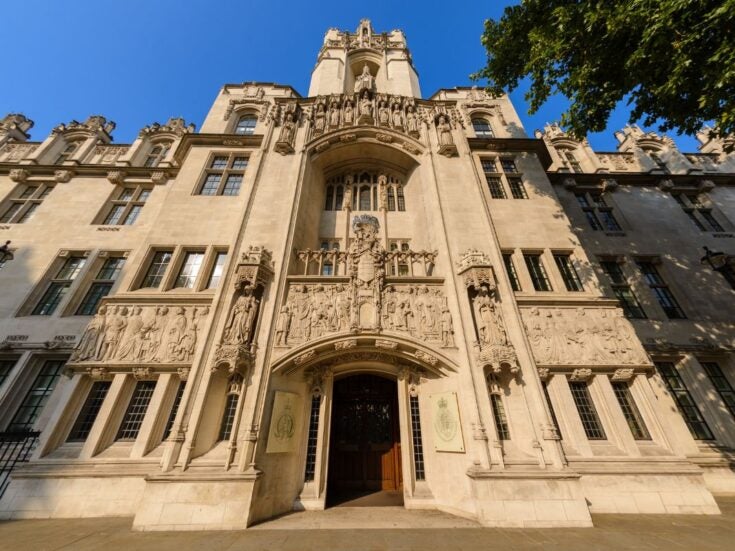
London is the capital of the financial universe – but the taxman sure is making life miserable for its richest residents, says Caroline Garnham
‘I know what you’re saying makes sense, but I just don’t trust him!’
George [not his real name] lives in Monaco but works in London. He wants his six children and grandchildren from three different marriages to benefit equally after his death, without squandering his money in one generation.
As his trust and tax lawyer, I have advised him to set up a trust, to be managed by a single set of trustees, free from the influence of his ex-wives. He fully understands the tax consequences, but he fears for what the Labour Government could do if it stays in power while his assets are locked into a trust.
In George’s opinion, Gordon Brown appreciates neither him personally as a successful generator of income and capital, nor his business based in London, which employs literally hundreds of people. Maybe he’s right!
Over the past few years, I have seen a worrying trend in the UK towards the capricious and pernicious taxation of the rich. The first signs of trouble started in 2003 when the Budget provided the Revenue with additional funding of £66 million for a three-year project to generate additional revenue of £1.4 billion from tackling different forms of non-compliance – the perceived offshore threat being a major part of this work.
Since then, we have seen a string of changes, aggravated by uncertainty. In 2005, two years into the three-year project, Her Majesty’s Revenue and Customs (HMRC) created a new unit, the Offshore Fraud Project Group, to recover tax from UK residents who are believed to hold offshore bank accounts. George had not been concerned about this new unit because he considered himself non-UK resident.
George commutes to London from Monaco on a weekly basis. He has been careful not to spend more than 90 nights in the UK from April to April each year to ensure he is non-UK resident. However, following the case of Gaines v Cooper in 2006 he can no longer be certain that HMRC will accept him as a non-UK resident, especially if the new investigation unit realises the extent of his income-producing assets offshore and considers the investigation into him worth the fight. The unit employs 40 investigators together with dedicated accountancy support and a research and development team. George was hoping for clarification in this year’s Budget, but nothing came.
This, sadly, is not his only cause for concern. If he wants to set up a trust, any disposal of assets into trust for which he is not eligible for a holdover relief, will be subject to capital gains tax up to a maximum of 40 per cent on any inherent gain in the assets made during his ownership.
George was thinking of moving his business abroad, but the decrease in corporation tax to 28 per cent in this years’ budget has made him reconsider. He is still irritated that it is too little, too late.
George regularly flies to and from Monaco with a friend who also has substantial business interests in the UK. I shall call him Henri. Unlike George, Henri is not concerned about the number of days he spends in the UK, because he is non-UK domiciled and eligible for all the numerous exemptions and reliefs for his offshore income, capital gains and assets otherwise subject to inheritance tax.
Some time ago, Henri set up his arrangements, which he has never declared to HMRC because his bank has operated separate income and capital accounts and therefore he understood that he did not need to declare these accounts.
This Offshore Fraud Project suspects there to be £200 billion held between thirteen offshore financial centres that is derived from tax evasion and unacceptable tax avoidance in the UK. Henri is concerned that some of his investments abroad may have got a little muddled over the past few years; maybe a little income has been added to the capital account and these sums have been used for investments in the UK.
The last thing he wants would be for HMRC to start investigating all his offshore financial arrangements. He has no objection to paying whatever tax is due, but he is not willing to spend his precious time or to pay someone to spend time going through all his old bank accounts to find the odd glitch in the administration which could result in some tax due to HMRC.
Worse than the inconvenience and expense is the concern that following an investigation he will not know what HMRC could or would do with the personal information gleaned about his personal finances. Where could this information end up, given the numerous exchange of information treaties the UK has with other countries?
Henri has heard rumours of a tax amnesty, but it does not address his concerns, and he does not believe it will happen in the UK effectively under Gordon Brown.
On the frequent flights George and Henri make to and from the UK, their conversation is increasingly centred on the possibility of relocating to Switzerland. Unlike Gordon Brown, they argue, the Swiss not only understand wealthy families, but encourage them to relocate to Switzerland.
New prospective residents can negotiate with their preferred Swiss canton to pay an annual tax which is fixed for a number of years. Furthermore, any information gleaned from banks or authorities cannot be exchanged without the threat of a criminal sanction.
The trouble is that both Henri and George actually like London. They do not want to live in Switzerland. Their friends are in London, the business opportunities are in London, and they love the culture and buzz of the city. In short, they and their families would prefer not to have any further restrictions on their visits to London.
In Spain, the top 100 wealthy families formed a group to lobby the Government against a tax that in their opinion penalised the wealthy. The lobby was effective and the tax withdrawn. There is no reason, why this could not be done in the UK. If not, the UK will likely become poorer culturally as well as economically as a result. Powerful and successful individuals like Henri and George will simply vote with their feet.







